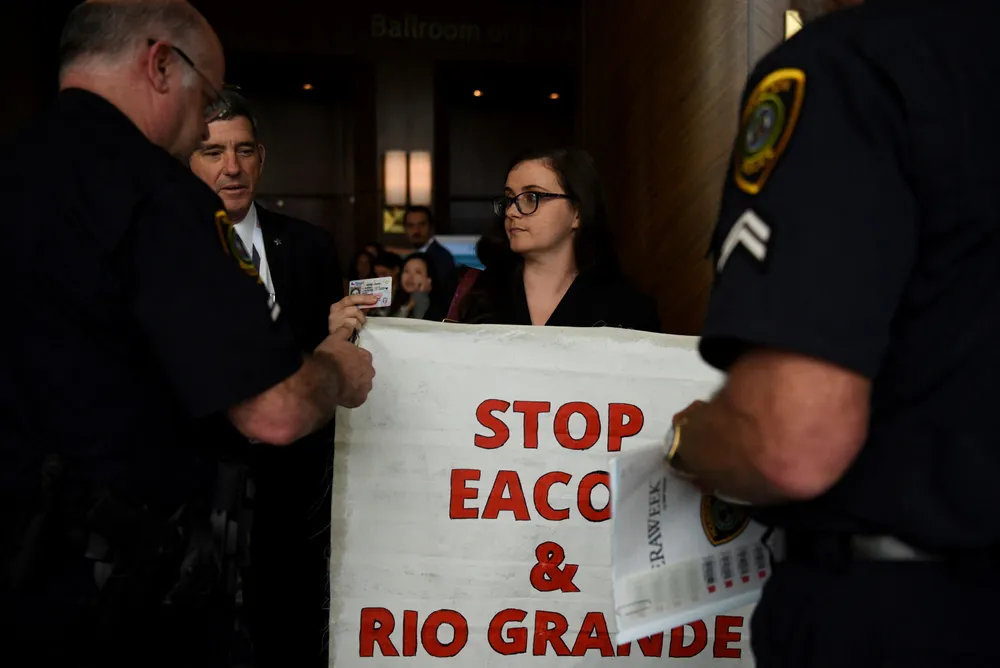Singing protester interrupts TotalEnergies chief during talk on energy transition
TotalEnergies chief executive Patrick Pouyanne was interrupted by a protest over gas and oil projects in East Africa and Texas

TotalEnergies chief executive Patrick Pouyanne was interrupted by a protest over gas and oil projects in East Africa and Texas
